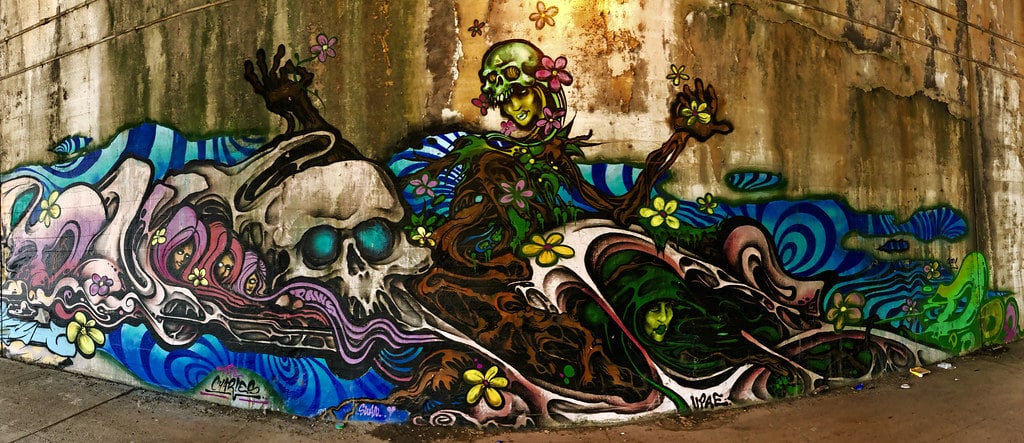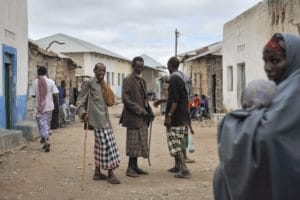
We Are Witnessing the Collapse of Society
by Stephen Kwakye
You may have a front row seat in witnessing the breakdown of the greatest societies that have ever existed in history. This is truly a one in a million spectacle and you get to witness it happening firsthand, so strap in! If anything can make our societies, which are often thought of as invincible go Kerplunk!, climate change is certainly the best candidate for it. I am hoping for a major plot twist, and soon.
So, what makes a society vulnerable to decay?

Historically, the breakdown of great societies has been stimulated by external and internal factors. These factors usually occur over a long period of time, and are ingrained in the way a society functions, which results in them being overlooked or ignored. This preconditions a society to have a weak sociological response to devastating crises, which in turn has the power to bring a once great nation to its knees. This is because pressing problems are portrayed as benign and are left unattended to by the central authority until it’s too late.
This is precisely what is happening today with the climate crisis. Governments setting unambitious goals to reduce carbon emissions with little to no action to reach them and the general population turning a blind eye to the problem.
Factors that lead to decay
Declining agricultural productivity

I don’t think I have to explain why a drop in food production has the potential to be devastating. With all of our smartphones, smart TVs and smart cars, a food shortage seems like something of the past.
However, a food crisis has been seen as recently as 13 years ago during the “global food crisis” of 2008 where food riots took place in several countries around the globe. Global hunger has been falling for decades, but in 2020 it began to rise. If current trends continue, the number of people undernourished globally could reach just shy of 1 billion by the year 2030 [1], as our warming planet negatively affects crop yields and food quality.
Droughts, extreme heat and floods have doubled since the early 1990s. Plant diseases are becoming harder to predict. As the habitats they can thrive in expand, they appear in areas they were previously not seen in before thereby posing new problems for food growers as well as for everyone who depends on them, which is you. With countries increasingly relying on food imports, 45% of the food consumed in the UK is imported [2], we are likely to see a drop in food volume and variety across the globe. This could lead to food shortfalls globally.
Anthropogenic Degredation
Existing greenhouse gases in our atmosphere will push the climate into more than two degrees of warming according to a new study [3], meaning the goals set at the 2015 Paris Agreement to limit global warming to 1.5 degrees Celsius pre-industrial levels will be missed by a landslide.
Two degrees of warming past pre-industrial levels is similar to the Earth’s temperature in 6000 BC, in which the American Midwest, now home to 65 million people, was a desert [7]. Residents will be forced to leave their homes and migrate to more habitable zones, possibly leading to conflict with those who already occupy these areas.
In addition, every degree of warming leads to about a 5 – 15% drop in food production [4]. With an expected global population just short of 10 billion by 2050, this seems like a recipe for disaster as there will be less space, less food, and more mouths to feed. With six hundred million people already starving today, it seems reprehensible that a blind eye is being turned. It is clear we are currently heading towards a breaking point in human development and famine is likely to be seen on an unprecedented scale.
Elite Incompetence/Dilution of Central Authority

At a glance, this may seem unrelated to how climate change can lead to societal collapse, but hear me out, as this all ties back to the factor that is typically the start of almost all cases of societal collapse — incompetence of people in power and the dilution of central authority.
The famous Swedish scientist, Svante Arrhenius, hypothesized a build up of CO2 in the atmosphere could lead to global warming back in the 1800s. We have known for over three decades that human activity is having a significant impact on the Earth’s temperature, and the threats that a warming climate could have on our futures. So, there seems to be no reason why nothing has been done to fix or mitigate the mess we’re in; however, we are missing one important piece of the puzzle — incompetence induced by greed.
For several decades there has been a need for societal elites and members of government to downplay the urgency of climate change. With oil and gas companies total revenue reaching $3.3 trillion in 2019 [5], they have a large influence on members of political parties who place a higher value on financial gain than on true democracy, essentially relinquishing their power in government to third parties who care nothing of the well-being of society. This ultimately leads to a loss of the values and morals that built our societies and brought them to the prosperous position they’re in now.
We Must Take Action
Contrary to common belief, societal breakdown doesn’t happen abruptly. It is often decadal or centennial, meaning we can observe this happening over the course of a human lifetime. We can then prevent it from happening by dealing with the causes. We, the people, are the many, and you reading this represent that part of society that is finally waking up and in the position to take action against the atrocities being acted out on life itself.
We all have an infinite reservoir of potential inside of us. The only thing left is to start taking action and begin waking others up too. This is because it will take all of us to make the changes necessary to alter the path we are going down as one united human race. So, what will you do to help take us a step forward in the right direction?
1. Global hunger fell for decades, but it’s rising aga
2. Food Statistics in your pocket: Global and UK supply
3. New Study 2 degree warming
4. Global Food System and Climate Change
5. What Percentage of the Global Economy Is the Oil and Gas Drilling Sector?
6. The Discovery of Global Warming – Timeline
7. Climate Change: What Happens If The World Warms Up By 2°C? (Video)
Stephen Kwakye — Author
Stephen Kwakye is a 21-year-old chemistry graduate, whose parents moved to the UK from Ghana and Sierra Leone in the 90s in search of a better life. Promptly after becoming aware of the dire situation our planet is in, he started a YouTube channel dubbed “HigherVibrations” in order to spread awareness.